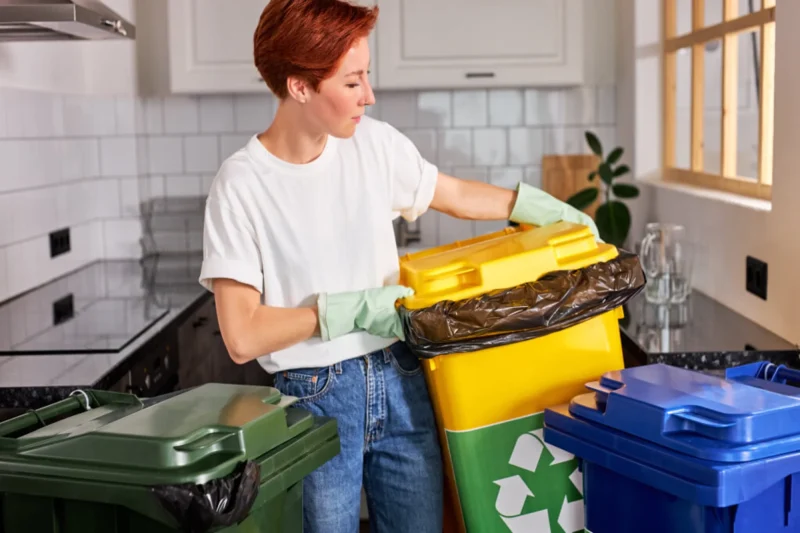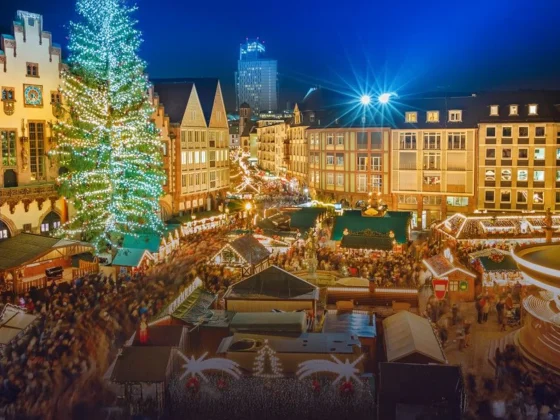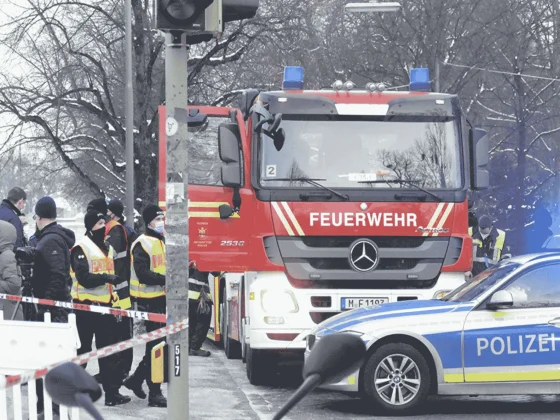Germany is a country known for its environmentally friendly policies and sustainable lifestyle. Here, waste sorting is taken seriously and everyone is expected to contribute to it. So if you live or plan to live in Germany, it is imperative that you learn how to sort your rubbish correctly, because if you do it wrong, you can even be fined. But don’t worry, the system is very organised and easy to get used to.
First of all, in Germany there are usually different coloured bins for sorting rubbish in houses, apartments and workplaces. Here are the most common categories of rubbish you will come across:
General waste (Restmüll) – black bin: This bin is for waste that cannot be recycled. This means general household waste that does not contain hazardous substances, such as dirty packaging, nappies, cigarette butts, etc.
Biological waste (Biomüll) – Brown bin: Organic waste such as vegetable and fruit peelings, coffee filters, tea bags and garden waste goes in this bin.
Paper and cardboard (Papier) – Blue or green box: Paper products such as newspapers, notebooks, cardboard boxes and egg cartons go here.
Plastic, metal and packaging waste (Wertstoffe / Gelbe Tonne) – Yellow bin: Plastic bottles, milk/juice cans, aluminium foil, disposable plates/cups/foam products, tin cans, yoghurt containers, etc. are collected here. If there are food residues inside, it is important to shake them gently and throw them away.
Glass (Glas) – Glass Containers: Glass bottles and jars are suitable for recycling. But there is an important detail here: Glass should be sorted according to colour! There are different containers for green, brown and white glass. If you have glass of another colour (e.g. blue), you should put it in the green glass container. You should also separate jar lids before throwing them away. Finally, do not forget to observe the ‘rest times’ in Germany when recycling glass waste.
Deposit bottles (Pfand): In Germany, most beverage bottles come with a deposit, which means you pay an extra fee when you buy them. But good news: If you return these bottles to the vending machines in supermarkets, you get your money back! If you don’t want to, you can leave the bottles next to the rubbish bins, because those who need them will collect them and recycle them.
Hazardous Waste: Hazardous waste such as paint, batteries, fluorescent lamps, motor oil, etc. should never be thrown in the normal rubbish. You should take them to special collection points designated by the municipalities. You can find more information on this topic on the website of your local municipality, by contacting the municipality directly or by contacting the relevant local organisations.
Electronic waste (Elektroschrott): Don’t throw away unused items such as phones, computers and televisions! Some cities in Germany have special containers for electronic waste. If not, you can use the municipal collection service. You can find more information on this topic on the website of your local municipality, by contacting the municipality directly or by contacting the relevant local organisations.
Bulky waste (Sperrmüll): You can take bulky waste such as old furniture, large electronics, etc. to the recycling centres yourself, or you can leave them on the street during certain periods or on certain collection days determined by the municipalities. In Germany, it is important to follow the rules set by the municipalities for dropping off Sperrmüll. You can get information from the official websites of the municipalities or the relevant local organisations.
Clothes Containers: Instead of throwing away the clothes you do not use, you can leave them in the clothes containers in the cities. In line with the new regulations that came into force in 2025, it is aimed to increase the recovery rates by prohibiting textile waste from being thrown into general bins. Thus; the clean and wearable ones are donated and the rest are sent for recycling. . In addition to creating a sustainable fashion cycle, this practice also plays an important role in social solidarity and reducing the amount of waste.
In Germany, the waste sorting system is not only used to protect the environment, but also to generate energy. Organic waste is converted into energy in biogas plants, plastics are recycled and used in new products. In other words, by sorting your rubbish correctly, you contribute to both nature and the economy!
This system may seem complicated at first, but it is very easy once you get used to it. In addition, each municipality may have different rules and these rules may change over time, so you can access up-to-date information from the website of the place where you live. Remember, you can make a big difference with a little effort! 🌍♻️
This content is provided solely for general informational purposes and does not encompass all details. Maxi Digital GmbH disclaims any responsibility for ensuring the currency and accuracy of the content. It is recommended to refer to official sources for the most current and reliable information.








